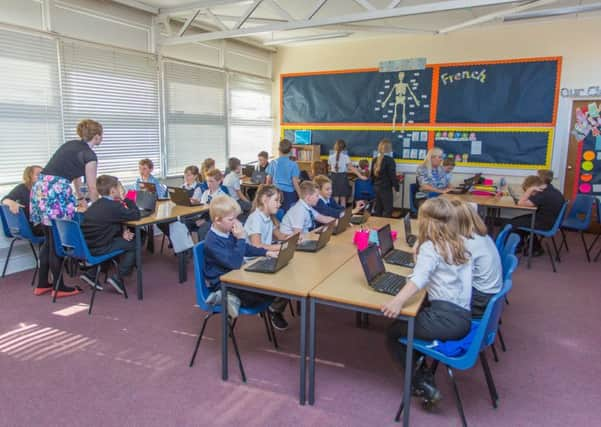Why we should all be learning languages


But is there any actual benefit to learning a foreign language in high school?
The answer is a resounding yes.
From economic, to cognitive development, Fhiona Fisher of Scotland’s National Centre for Languages believes there are numerous reasons to learn a second language.
Advertisement
Hide AdAdvertisement
Hide Ad“Research shows that UK employers are dissatisfied with applicants’ language skills and it is estimated that £0.5 billion is lost to the Scottish economy every year because of a lack of language skills in the workforce. It is clear that if our young people are to be able to complete in an increasingly global market, then they have to be able to offer a similar range of skills and aptitudes to those of their counterparts from elsewhere in the world.”
This year has been the first of many that more upper high school students are choosing to study languages, going against the recent declining trend. And Ms Fisher feels like it can only be a good thing.
“The ability to communicate in another language is life-enhancing. Even a little of a language deepens the learner’s understanding of the people and places where that language is spoken. This, in turn, develops friendship, tolerance and mutual understanding in a way that monolingualism cannot.”
This is the primary aim of the European day of Languages. It encourages schools to celebrate all languages, not just the ones taught in the establishment, and especially ones that are spoken across the school and community. They believe it helps to create a sense of inclusion, and helps to develop young persons’ sensitivity towards a diversity of peoples and cultures.
They believe it is because of the governments commitment to the 1+2 program, which states that all children should learn an additional language (L2) from P1 at the latest. They should learn a second additional language (L3) from P5 at the latest.
A Scottish Government spokeswoman said: “The increase in young people gaining a Higher or Advanced Higher language qualification in 2015 is a sign that our ambitious 1+2 policy is having an impact, with pupils and parents increasingly recognising that language skills open up opportunities in life and work.
“We are encouraged with the pace at which local authorities are moving towards implementation of the 1+2 policy. Clearly there is more to do to ensure that we provide all children with many diverse choices and opportunities to learn a language. This year we will provide local authorities with an additional £7.2m to drive this work forward, in addition to the £9 million invested in 2013-15. We continue to work closely with Scotland’s National Centre for Languages and Education Scotland to provide advice and support to local authorities on their journey to create the conditions where excellent language learning opportunities are a normal and expected part of a broad, relevant school education.”